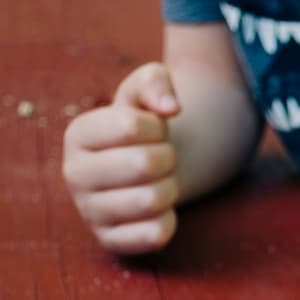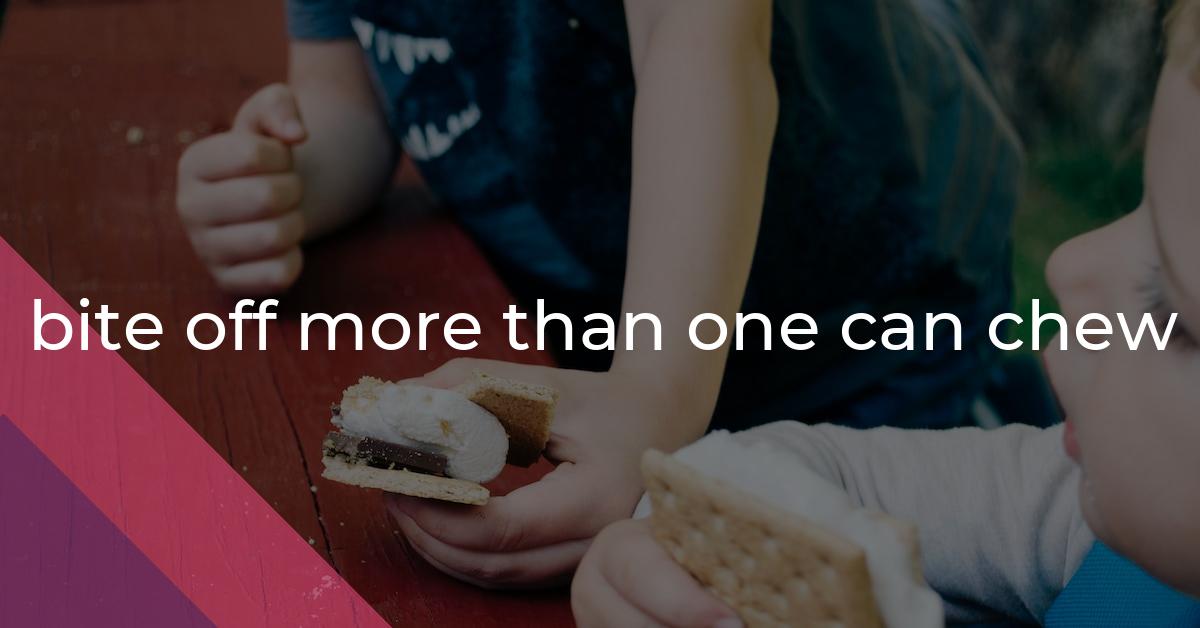bite off more than one can chew: Idiom Meaning and Origin
What does ‘bite off more than one can chew’ mean?
The idiom "bite off more than one can chew" means to take on or commit to more tasks or responsibilities than one is able to handle or manage effectively.

Idiom Explorer
The idiom "take a bite out of" means to reduce or lessen something, usually by a significant amount.
The idiom "eat one's head off" means to consume something excessively or without restraint, often referring to a person or an animal consuming food in large quantities. It emphasizes the idea of extreme or voracious eating.
The idiom "eat one's cake and have it too" means wanting to consume something or achieve a certain outcome, but also wanting to keep it intact or have it for future use. It implies a desire for contradictory things that cannot both be satisfied.
The idiom "eat it" means to accept or tolerate something unpleasant or embarrassing, often with resignation or humility.
The idiom "eat an elephant one bite at a time" means tackling a large or overwhelming task by breaking it down into smaller, more manageable parts.
The idiom "easier said than done" means that something is much more difficult to accomplish than it sounds or appears to be.
The idiom "dig in" means to start eating eagerly or to begin working hard or with determination.
The idiom *chow down* means to eat a large amount of food quickly and greedily.
The idiom "chomp at the bit" means to be eagerly impatient or restless to do something. It is derived from the behavior of horses when they bite down on the bit in their mouth due to excitement or impatience.
The idiom "choke off" means to stop or prevent something from continuing or progressing.
Chomping Beyond Capacity
The idiom "bite off more than one can chew" is a commonly used expression in English. It cautions against taking on more than one can handle.
This idiom compares attempting to consume more food than one can chew to taking on too many responsibilities or tasks.
The origin of this idiom can be traced back to physically biting off more food than one can chew. The challenge of chewing and swallowing an excessively large portion of food represents the difficulties that arise when someone takes on too much.
The idiom dates back to the early 19th century and is widely used in literature and everyday conversation. It conveys the idea of being overwhelmed by a task or responsibility.
The idiom is commonly used in a negative context, but it can also be used humorously or ironically. It may even encourage someone to push their limits and challenge themselves.
Overall, the idiom serves as a reminder to assess one's capabilities and limits before taking on tasks. It encourages sensible decision-making and helps avoid stress or failure.
Despite its widespread usage, the idiom still sparks curiosity about personal capacity and the consequences of exceeding one's limits. It invites further reflection and analysis.
Example usage
Examples of how the idiom *bite off more than one can chew* can be used in a sentence:
- She took on two part-time jobs, but soon realized she had bitten off more than she could chew.
- The team decided to participate in two tournaments at the same time, but quickly found out they had bitten off more than they could chew.
- John thought he could handle all the responsibilities of organizing the event by himself, but ended up biting off more than he could chew.
More "Mistakes" idioms



